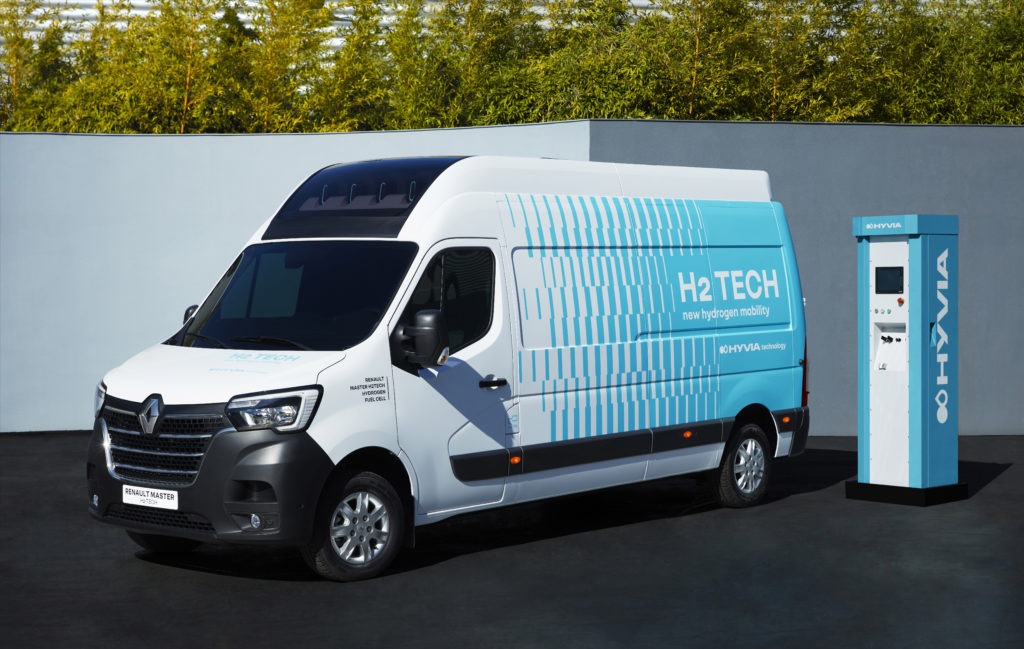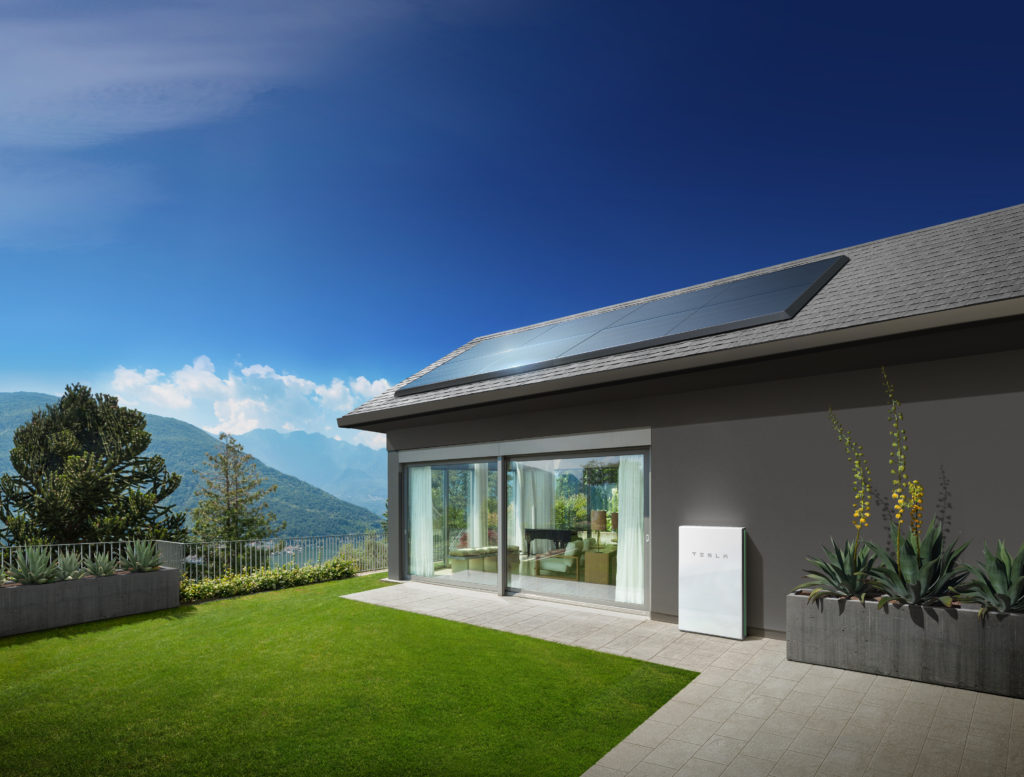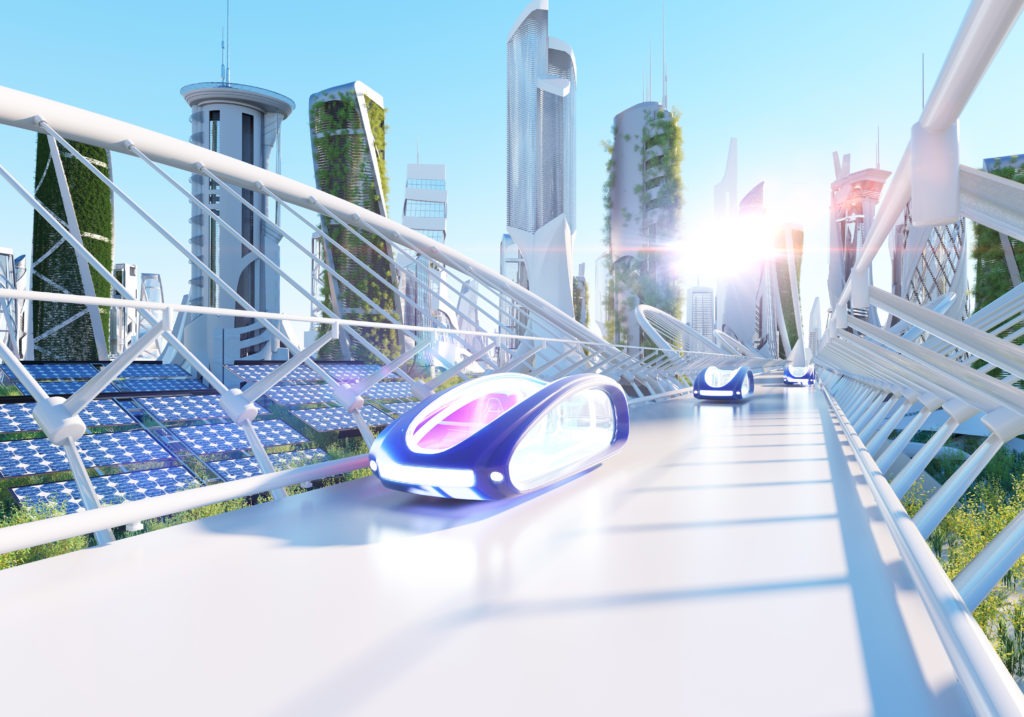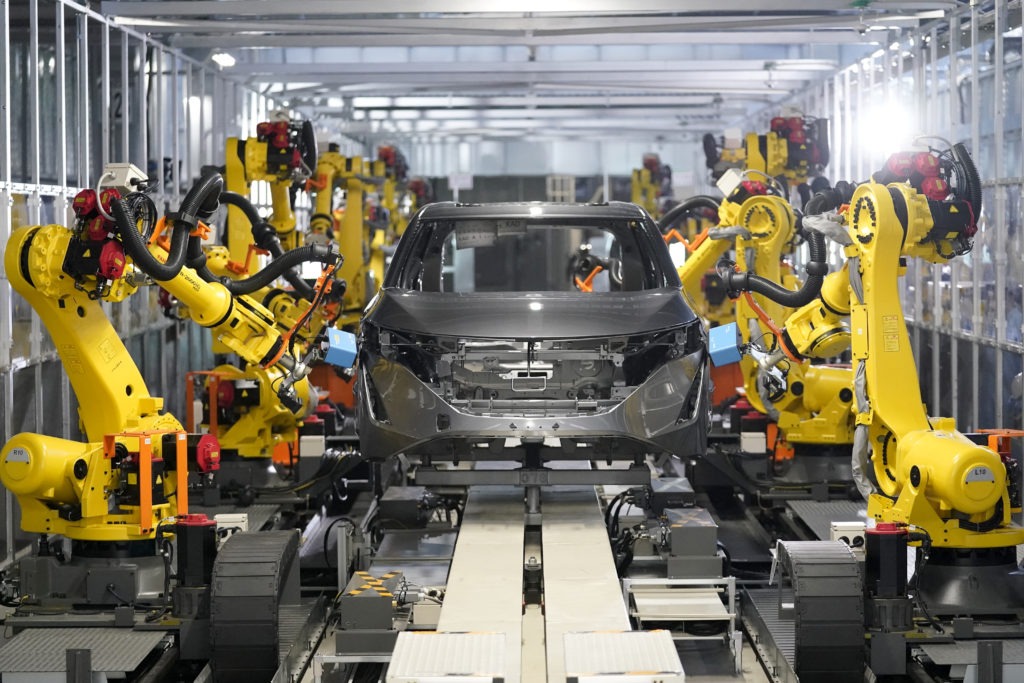Hyvia launches prototype hydrogen van and fuelling station
18 October 2021

Hyvia, the hydrogen logistics supplier from Renault, has unveiled prototypes of its first light-commercial vehicle (LCV) and refuelling station, as it looks to launch both products to market next year.
The Hyvia Renault Master Van H2-Tech prototype is equipped with a 30kW fuel cell, production of which is scheduled to begin in France by the end of this year. The e-motor and hydrogen integration systems are also made in the country, making the Hyvia van a truly French affair.
The refuelling-station prototype has been designed to offer customers convenient options where public infrastructure is still in development. The station offers fast fuelling, making it easier for logistics companies to keep to their strict schedules and for drivers to stay on the road.
Hyvia states that these prototypes are a ‘first illustration of the unique and complete Hyvia ecosystem including green hydrogen production and distribution, with a range of fuel cell-powered, light-commercial vehicles.’
Hydrogen economy
Hyvia was launched by Renault earlier this year to introduce not just vehicles but an entire hydrogen infrastructure to the European market. The company, a partnership between the carmaker and hydrogen-energy business Plug Power, is concentrating on the commercial-vehicle (CV) market, where hydrogen offers the most benefits, but has not ruled out supplying into the passenger-car market in the future.
‘Hyvia is about hydrogen mobility solutions for a tailor-made offer to our customers to meet the challenges of hydrogen mobility,’ commented David Holderbach, CEO of Hyvia. ‘We will be able to deploy its entire ecosystem in all territories and professional fleets for carbon-free mobility. Hyvia is moving fast, bringing together the strengths and skills of two leaders: Renault Group and Plug Power.’
The prototypes are more than just an example of what the company has planned. They are a statement, showing that Renault Group is serious about introducing hydrogen to the CV market, and soon. They also show that the company is serious about its intention to provide a full service, including infrastructure, across the continent.
‘Renault Group aims to achieve carbon-neutrality in Europe by 2040 and worldwide by 2050, Luca de Meo, CEO of Renault Group, said at a recent PlugPower symposium. ‘We target a 20% market share of hydrogen-powered LCVs in Europe by 2030. Hydrogen mobility complements our move to electrification, enabling zero CO2 emissions, faster refuelling and increased range. These attributes are meaningful for LCVs.
‘These prototypes are the keystones for our ambitious portfolio to be deployed in territories and professional fleets.’
Fuel-cell technology offers much more convenience than battery-electric drivetrains, especially in the world of logistics. They can be driven for great distances and refuel in minutes, much like current petrol and diesel engines. However, the only emission from the tailpipe is water – a by-product of the hydrogen and oxygen reaction – to create electricity for the vehicle motors.
For the logistics market, fuel cells also mean less weight than battery-powered vans, increasing payload that can be carried. Therefore, they will be efficient and reliable when it comes to making deliveries, much like internal-combustion engine vehicles.



